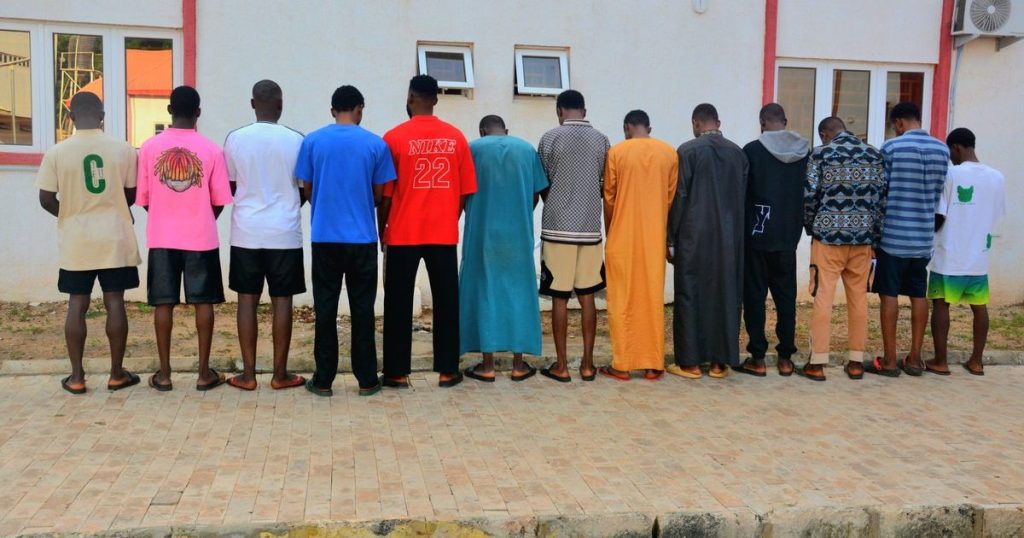The Economic and Financial Crimes Commission (EFCC) has recently made significant strides in combatting internet fraud in Sokoto State, as they apprehended thirteen suspected fraudsters associated with online criminal activities. This operation took place on Saturday, September 28, 2024, in the Gidan Yaro and Dandima areas of Sokoto, prompted by credible intelligence regarding the suspects’ engagement in internet-related crimes. Such actions by the EFCC highlight the ongoing battle against financial crimes that have increasingly become a concern in Nigeria, particularly those that exploit the digital landscape.
According to an official announcement from the EFCC via social media platform X, the arrests represent a significant step in addressing the surge of internet fraud cases in the region. The suspected fraudsters were detained following thorough intelligence gathering that suggested their involvement in various online scams. This operation underscores the dedication of the EFCC to maintain integrity within financial transactions in Nigeria and to deter potential future offenders from committing similar crimes.
All thirteen suspects have claimed to be students at Usman Danfodio University, which raises concerns about youth involvement in criminal activities tied to the internet. This highlights a troubling trend of higher education institutions being indirectly linked to illicit activities, as young individuals may resort to internet fraud for financial gain amid economic hardship. The EFCC’s encounter with university students in this operation stresses the need for more robust educational programs that emphasize ethical behavior and the repercussions of engaging in fraud.
Upon completing the investigation, the EFCC stated that the suspects will be formally charged in court, which is an essential step in the legal process aimed at holding individuals accountable for their actions. Legal proceedings will not only serve justice but also reaffirm the law enforcement agency’s commitment to ensuring that internet fraudsters face the consequences of their illegal activities. This reflects the agency’s broader strategy to tackle economic crimes and maintain trust in Nigeria’s digital economy.
Furthermore, the arrest of these thirteen suspects draws attention to the wider issue of internet fraud in Nigeria—a growing epidemic that affects countless individuals and undermines economic stability. The EFCC continues to warn potential offenders that the agency is vigilant in monitoring and addressing such criminal activities, encouraging a proactive approach among citizens to report suspicious actions online. Combined efforts from the public and law enforcement can significantly contribute to mitigating the risks associated with internet crime.
In conclusion, the recent arrests by the Sokoto Zonal Directorate of the EFCC highlight a critical moment in the fight against internet fraud in Nigeria. The involvement of university students in such activities presents significant challenges and demands immediate action to educate young people on the dangers and consequences of financial crimes. The EFCC’s dedication to bringing these suspects to justice serves both as a deterrent and a reminder of the ongoing battle against corruption and fraud in an increasingly digital world.














